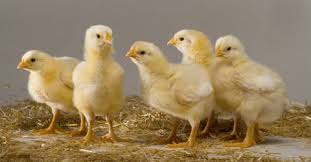Infectious bronchitis
Is a highly contagious viral respiratory infection of chickens, however the virus will also infect the urogenital and gastrointestinal tracts. The clinical signs of infectious bronchitis are non-specific and so laboratory tests are required to confirm diagnosis. Clinical signs are strongly dependent on the tropism (preferred tissue to infect) of the strain, but commonly include include coughing, sneezing and gasping in young birds, loss of appetite and wet litter.
Infectious bronchitis (IB) is an acute, highly contagious, viral respiratory disease of chickens, characterized by tracheal rales, coughing, and sneezing. In addition, it may affect the kidneys, and in laying flocks, it decreases egg production and impairs the quality of eggs produced
Feed intake decreases sharply and growth is retarded. Mortality in young birds can be high (up to 30%), however minimal mortality is experienced in older birds (> 5 weeks old). Less common strains can cause a sharp drop in egg production in layers, and production usually drops to near zero within a few days. Recovery occurs within 3 – 4 weeks, however some flocks never regain an economical rate of lay. During an outbreak, small, soft-shelled, irregular-shaped eggs are produced.
What causes infectious bronchitis?
Infectious bronchitis is caused by a coronavirus. The virus is highly variable and new serotypes and genotypes continue to appear. The virus dies quickly outside of the host but can spread through the air and can travel considerable distances during an active outbreak. It can also be spread via fomites such as clothing, poultry crates and equipment. The disease is not egg transmitted and the virus does not survive much more than one week in the house when poultry are not present. Classical Australian strains are nephropathogenic (cause kidney damage) and treatment using electrolytes may be beneficial in an outbreak. Insufficient work has been done on antigenic variants in Australia and there is a limited range of vaccines available (all local strains). Variants are continually being detected, the most recent to cause problems was detected in NSW broiler flocks.
Prevention and treatment of infectious bronchitis
The highly contagious nature of this disease generally results in all susceptible birds on the premises becoming infected, often in spite of biosecurity measures such as sanitary or quarantine precautions, which should always be maintained. There is no treatment for this disease. Secondary infections with bacterial diseases are common and antibiotics may reduce losses from these infections. The virus is easily destroyed by heat and ordinary disinfectants. In young chickens it is helpful to increase the brooder temperature and to optimise environmental conditions. Chickens that are kept as layers should be vaccinated. Whether broilers are vaccinated depends upon many operation-specific factors as numerous vaccines are commercially available. These vaccines represent a modified or selected strain of the infectious bronchitis virus and therefore the vaccine used should contain specific virus known to be present in the area. All vaccines contain live virus and those that give the best protection unfortunately can also produce clinical signs of disease and the vaccine virus will spread to other susceptible birds. Vaccine is usually added to the drinking water, but may be dropped into the eye or nostril or used as a spray
………………………………………………………..





